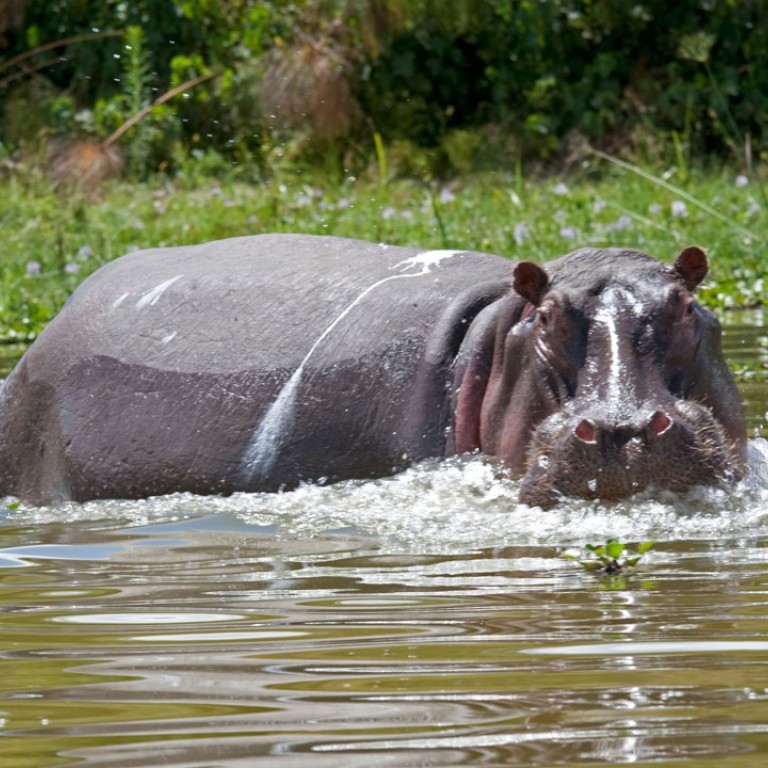
Kenyan officials did little when a hippo killed a local, critics say. Then a Taiwan tourist was mauled
‘We are saddened by the reaction of officers who were swift to act when a Chinese was killed by a hippo but are dormant when a local is involved’
The two men died similar, gruesome deaths just hours apart – fatally mauled after getting dangerously close to aggressive hippos that live on Kenya’s Lake Naivasha.
But, outraged critics say, authorities cared more about one than the other.

The second victim was Chang Ming Chuang, 66, who was with other tourists snapping pictures of the animals near the Sopa hotel, when a hippo charged, the Kenya Wildlife Service said. Another tourist was attacked at the same time but survived. Chang bled to death as paramedics tried to save him.
The Wildlife Service initially said Chang was Chinese. Taiwan’s foreign ministry later confirmed he and the injured tourist were both from Taiwan.
After Chang’s death, the Wildlife Service said in a tweet that it was “sad to announce the death of a #Chinese tourist who was attacked by a #hippo while taking pictures on the shores of Lake Naivasha yesterday evening. His colleague survived with minor bruises and was treated at #Naivasha District Hospital.”
The hippo that killed Chang was tracked and killed. It’s unclear what, if anything, authorities did about the fisherman’s killer, or whether they have any plans to kill it.
Hippos, which National Geographic calls one of the most aggressive animals on Earth, kill 500 people in African countries every year. Six of this year’s killings occurred on Lake Naivasha, about 80km southeast of Kenya. But the most recent deaths have pricked at racial and geopolitical wounds.

Critics also say that not enough had been done to track or kill other hippos that had killed locals on the lake this year.
The lake killings come as anti-Chinese sentiment is rising in Kenya and across the African continent.
China has infrastructure projects in 35 African countries, including in Kenya, which is building a US$13 billion railroad connecting the port city of Mombasa to the capital, Nairobi, according to the International Business Times.
In 2016, 200 youths attacked Chinese contract workers, injuring 14, the Times reported. Weeks earlier, 300 youths protested at the CRBC Duka Moja trading centre. Their arguments were the same in both instances: importing Chinese labourers is denying jobs to locals for a railroad Kenya is paying for.
Those issues, of course, are not the fault of the two-tonne water-dwelling mammals that slosh in Lake Naivasha. And as the reaction to the attacks has also illustrated, the hippos have their own problems to contend with.
That lakeside land is also prime real estate, and recent construction has encroached on habitat that in the past has belonged mostly to hippos.
That means the animals frequently stray onto the grounds of nearby farms and hotels, looking for food and coming dangerously close to humans.
Recent rains had only made things worse. According to the Star, a Kenyan newspaper, the downpours had caused the waters of the Naivasha to rise, washing away the plants around the water that the hippos feed on. Their hunger brought them closer to the humans.
“The hippo that attacked the Chinese was looking for pasture near the hotel. This is not the first time,” Kilo told Standard Media. “We have seen a rise in cases of human-wildlife conflict around the lake and this is mainly due to the encroachment on the riparian land.”
There are signs around the lake warning people about the hippos, and Wildlife Service spokesman Paul Udoto told the Associated Press that attacks on tourists are rare because they are usually accompanied by guides.

